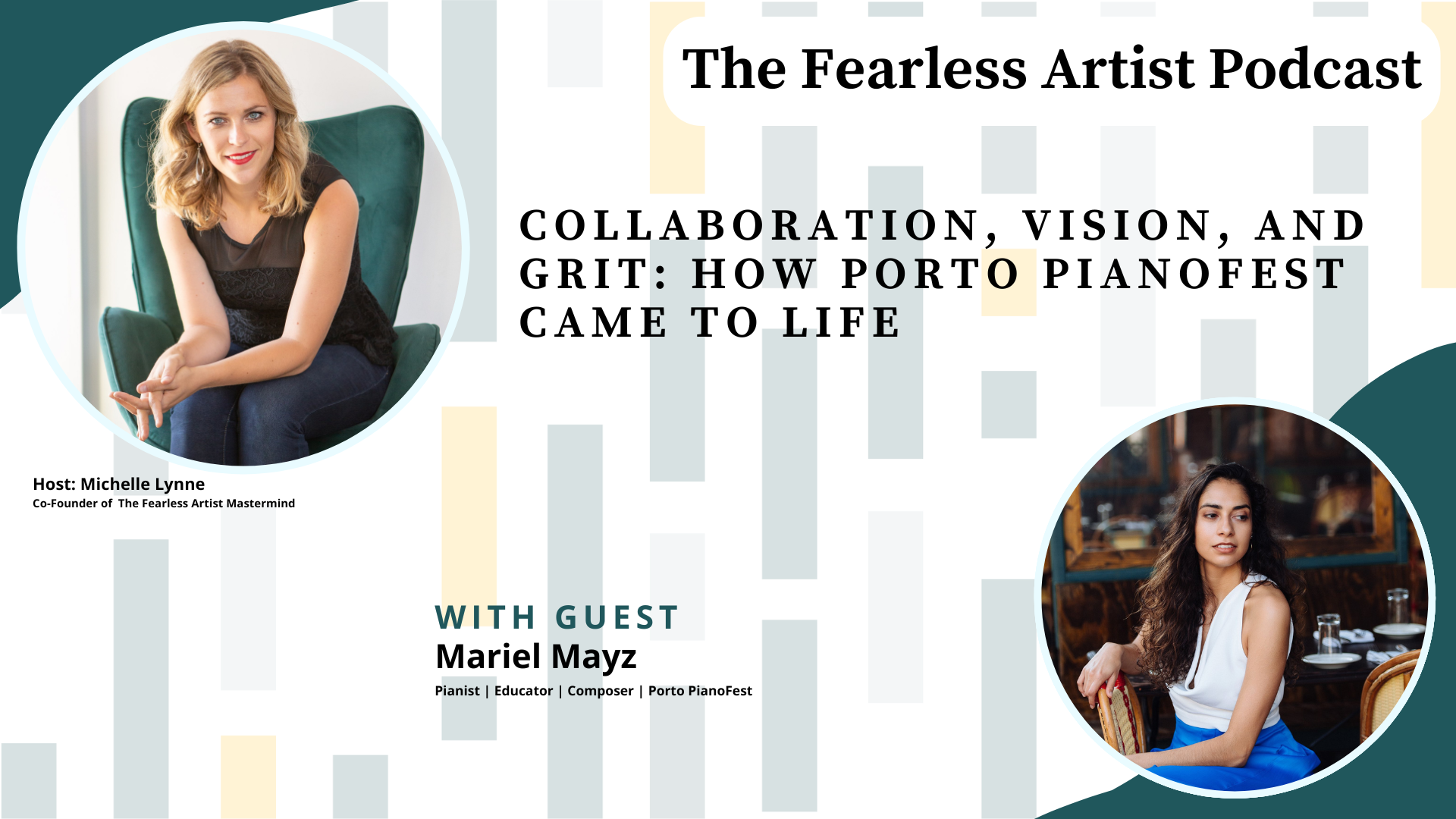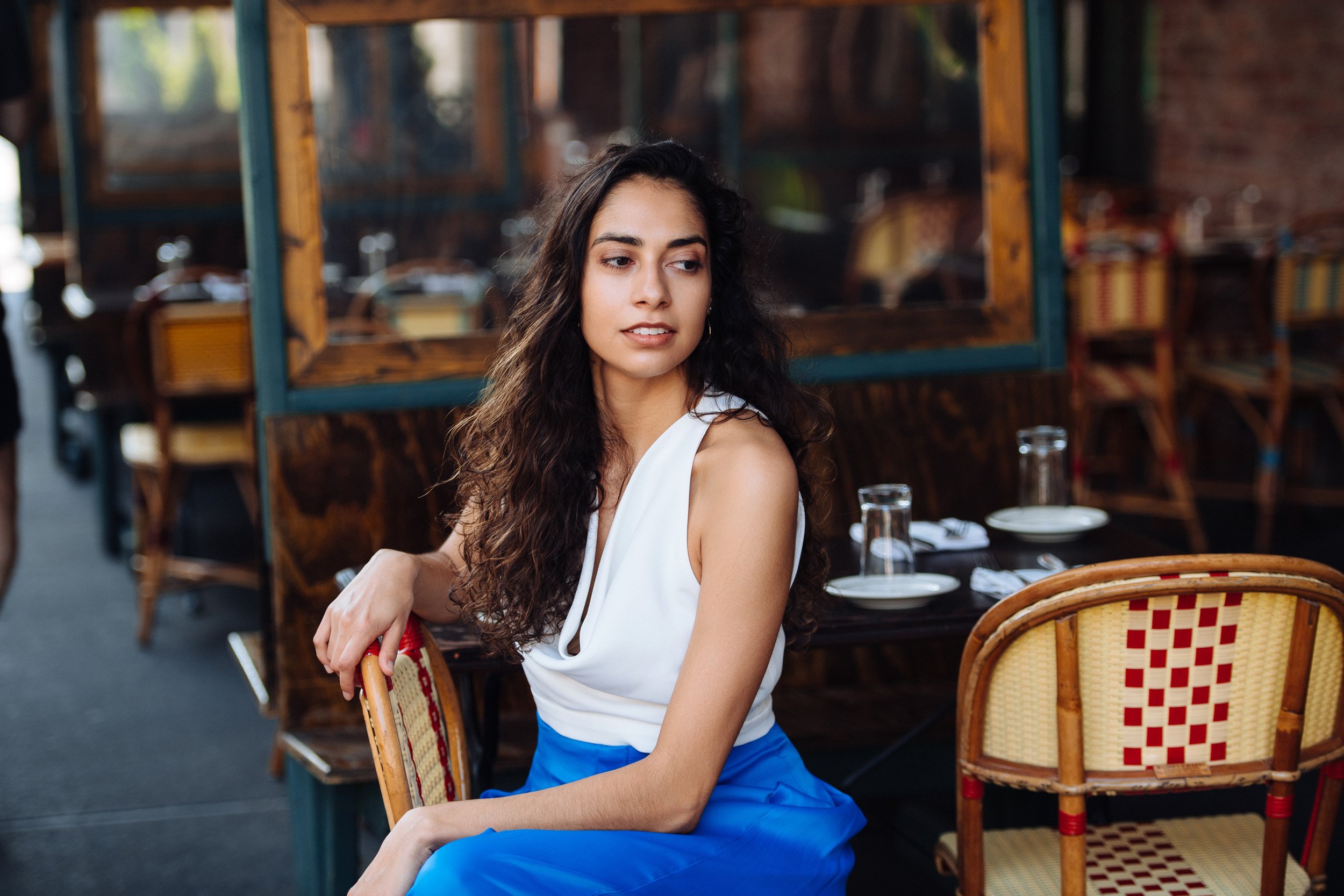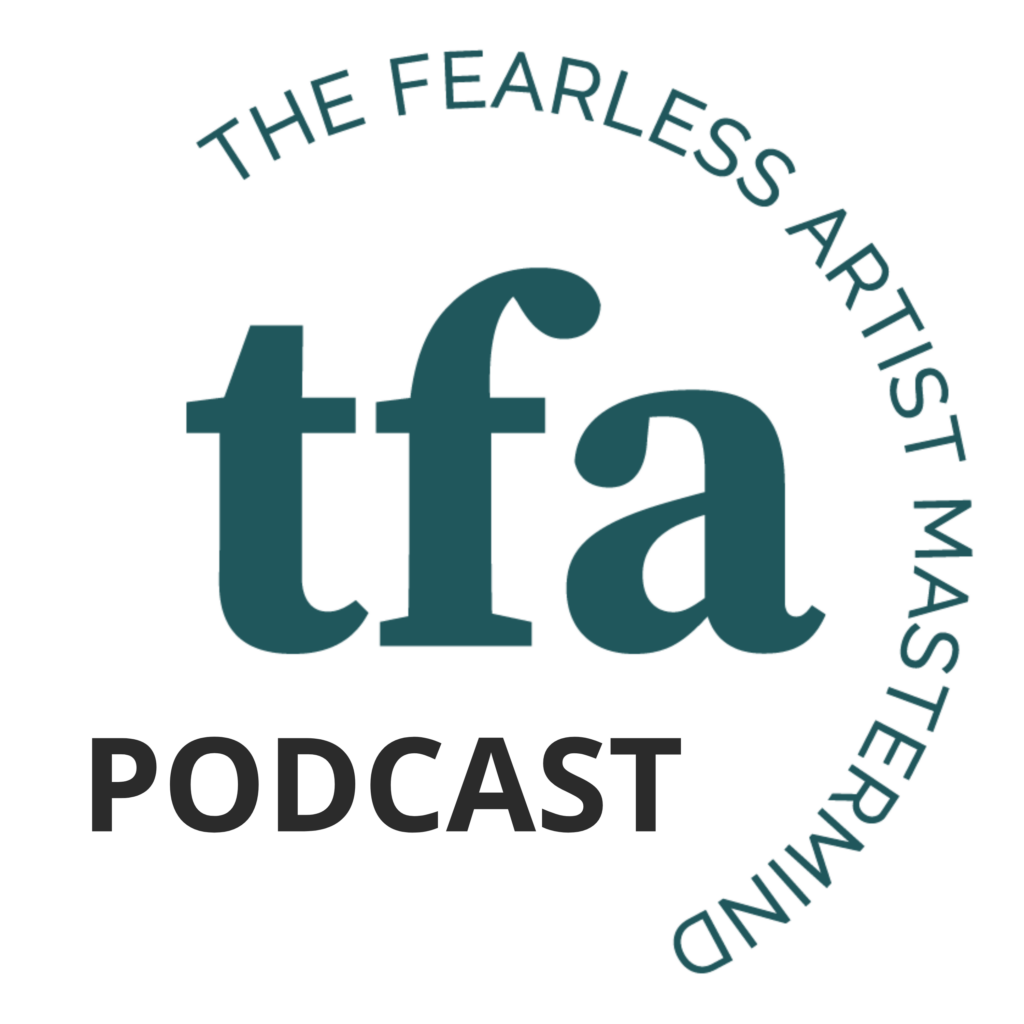Collaboration, Vision, and Grit: How Porto PianoFest came to life

Guest:
Mariel Mayz
Pianist | Educator | Composer | Porto PianoFest
New York native Mariel Mayz is a sought-after composer, pianist, educator, and administrator. Mariel’s original works have been described as inventive, colorful, compelling, and well-crafted. As a composer, her first large-scale work for the stage—a one-act, chamber opera— was commissioned by American Opera Projects and the Hunter Opera Theater. The work was premiered by the Hunter Opera Theater and Talea Ensemble during the 2018 New York Opera Fest.
In September 2022, Mariel’s debut album Leo Brouwer: Cuban Sketches for Piano was be released by the ZOHO music label, featuring premiere recordings of piano works by Leo Brouwer as well as original compositions and arrangements.
Mariel’s most recent works include commissions by the Japanese American Cultural and Community Center (Los Angeles, CA); Sarasa Ensemble (Cambridge, MA); two commissioned works for “The Illustrated Pianist,” celebrating the centennial of American author Ray Bradbury; the Higher Ground Festival (NYC), guitarist Nora Spielman, violist Elise Frawley, the Bloomingdale School of Music; Nyack College; and two-time Latin Grammy nominee João Luiz— whose piece Stifled was a finalist in the Portugal International Guitar Composition Competition.
Mariel’s arrangements have also been performed by renowned artists such as Atlantic Collective, Anthony Roth Costanzo, and Lara Downes— who just recorded Mariel’s arrangement of I’ll Be Seeing You on her latest album release by Pentatone. Mariel is currently working on the publishing and recording of her solo piano compositions, as well as preparing additional recitals in Europe, New York City and Boston.
Mariel Mayz made her debut as a pianist with the Rockland Symphony Orchestra at the age of sixteen, and thereafter continued to perform in places such as Carnegie Hall’s Weill Recital Hall, the Chamber Society at Lincoln Center, Steinway Hall, the French Embassy in New York, Tenri Cultural Institute, Roulette, and many other venues. In 2022, Mariel made her debut with the Greenwich Choral Society and Orchestra as the piano soloist for the Beethoven Choral Fantasy, Op.81. Mariel is an avid performer of contemporary music and frequently premieres new musical works in concert alongside standard repertoire.
Mariel Mayz has been invited to a number of summer festivals, including Pianofest in the Hamptons, the Boston University Tanglewood Institute, and the Gijon International Piano Festival (Spain) where she has worked closely with Logan Skelton, Jean Saulnier, Dominique Weber, James Giles, Marc Durand, Julian Martin, Robert MacDonald and Miyoko Lotto.
Mariel has studied a variety of musical genres, such as jazz, gospel and improvisation with musicians such as Jean-Michel Pilc and Mac Brandon. Additionally, her experience with musical theater has been developed throughout work with Broadway vocalists and choreographers, as well as her musical direction of productions at New York University.
Mariel received her Bachelor’s degree from New York University with a BM in Piano Performance from the Steinhardt School, and a minor in Social Entrepreneurship from the Stern School of Business and Wagner School of Public Service. She later completed a dual Master’s degree in piano performance and composition at CUNY Hunter College, and is currently a PhD Candidate at Brandeis University.
Mariel’s major teachers include José Ramón Mendez, Seymour Bernstein, Geoffrey Burleson, Suzanne Farrin, Justin Dello Joio, Erin Gee, and David Rakowski.
Mariel taught as an Adjunct Professor of Music Theory and lecturer for the Arts Management & Leadership Certificate at CUNY Hunter College. She additionally worked as the Program Coordinator of the Hunter Mellon Arts Fellowship— a pivotal program for diversity and inclusion within the field of arts management and leadership— from 2019 through 2021.
Mariel is currently a Teaching Fellow in the music department of Harvard University.
Mariel is the Co-Founder and Associate Director of Porto Pianofest— an international piano festival occurring annually in Porto, Portugal.

Subscribe to The Fearless Artist Podcast
Intro/Outro music by Michelle Lynne • Episode produced by phMediaStudio, LLC
